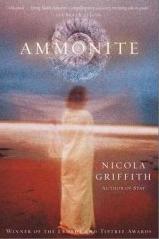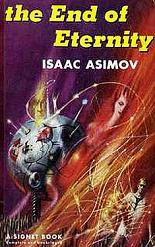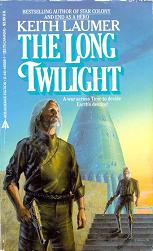
Ammonite
Nicola Griffith
386 pages
published in 1993
Nicola Griffith is a writer I’ve heard a great deal of but so far had never read anything by. Ammonite was her first novel and immediately made a strong impression on publication, winning both the James Tiptree Award and the Lambda Award. As these awards confirm, Ammonite is a classic feminist science fiction novel, straight in the tradition of writers like Ursula Le Guin (Left Hand of Darkness), Joanna Russ (The Female Man) and Sheri Tepper (The Gate to Women’s Country).
The world created in Ammonite is also a classic feminist science fiction trope: that of a world without men. In this case, it’s the colony world of Jeep where an alien virus killed off all men and a large percentage of women, leaving the survivors to rebuilt their societies on a one gender basis. How they’ve managed to do so is the central mystery of Ammonite, which is partially a puzzle story and partially a leisurely planetary romance as our protagonist, anthropologist Marghe Taishan, travels the planet in search of answers. Marghe is working for SEC, the government agency that was set up to safeguard the interests of indigenes of rediscovered colony worlds like Jeep from exploitation by the Company, which has a monopoly on space exploration and which whom Marghe has some unpleasant history…



